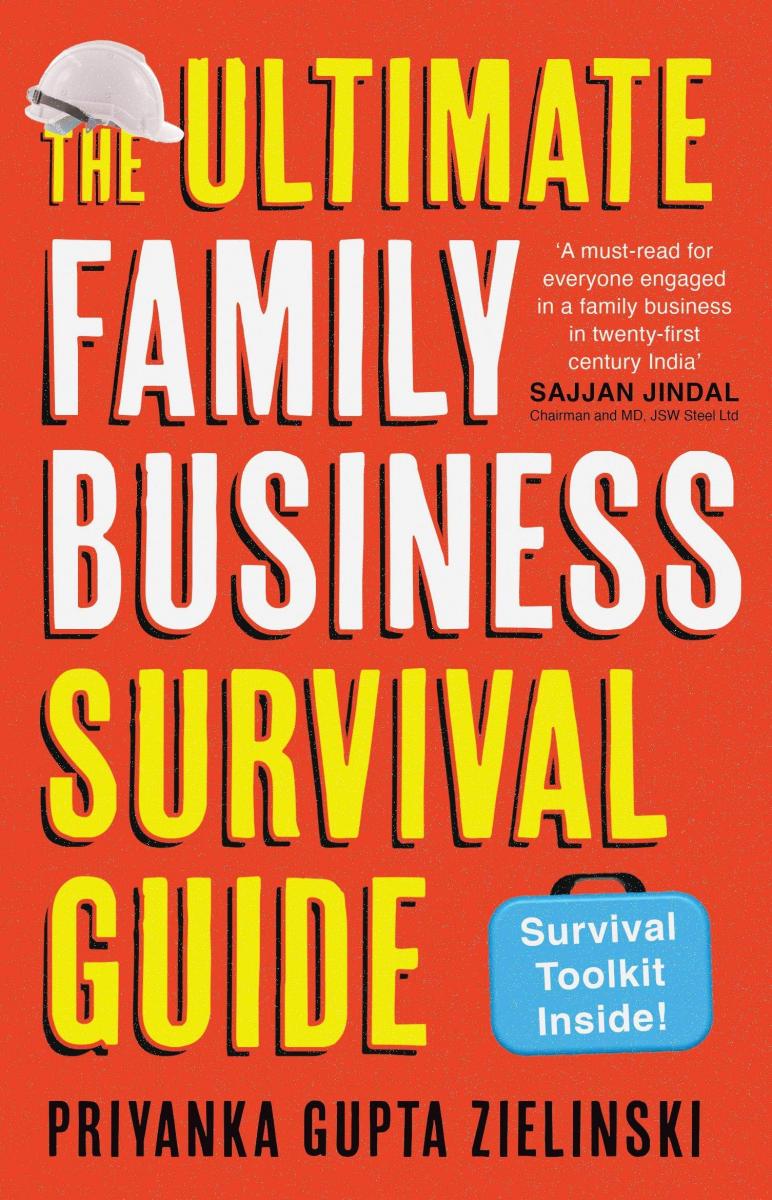How the next generation can conquer their fear and anxiety in family business succession

The most common stereotype about the next-gen members of a family business is that they are arrogant and overconfident and expect everything to come easily to them. But the reality is that these Gen Y and Z members become overwhelmed with self-doubt over joining the family business.
They have witnessed their parents working hard for years and feel immense pressure to perform as well or even better than their parents, which leads them to wonder whether they can truly deliver what is expected of them. Furthermore, all eyes are on them (both within the company and in the local community).
A bit of nervousness is natural when venturing beyond one’s comfort zone, more so when one’s family name is on the line. Not having a clear roadmap to success can bring even more anxiety. But the younger generation must understand that all generations deal with anxiety. Given the differences in experiences, each person deals with it differently.
The younger generation is often not well equipped to know how to move on—some shut out all advice, some lash out at others, others play the blame game. Moreover, anxiety is hardly discussed within a family business context, which makes it even more debilitating. Anxiety, associated with depression and medication, is thought to be something only the ‘weak’ experience. Space must be created within family businesses to allow an open discussion of feelings.
Despite the universal nature of fear and anxiety, the younger generation faces the greatest challenge in addressing their fears given their lack of experience in confronting failure. Fear should serve to push, not paralyse. You must take control of the situation and empower yourself.
 Cutting through fear and anxiety
Cutting through fear and anxiety
Anu Aga (pictured left), one of India’s wealthiest women, also experienced fear when she had to take over the reins of her husband’s company, Thermax Ltd, after her husband passed away unexpectedly. Describing her experience, she said, ‘I just wasn’t ready. I kept devaluing myself and thought that I was only being invited to take over because we as a family own this business. I really felt miserable, missing my husband, yet, having to assume his role … I didn’t know hardcore business, and I was terrible at finance. Being at the helm of the capital goods industry, I had to know both.’.
She feared she wouldn’t be up to the challenge. What did she do then? She turned to mindfulness, surrounded herself with experts and employees who could guide her and showed vulnerability. She could have let fear consume her, but instead, she faced it head-on. She pushed past her fear, donned her superhero cape, and ended up becoming incredibly successful.
As a next-gen member, how do you cut through your fear and anxiety? For members of the Y and Z generations, joining the family business poses unique challenges as compared to other firms. In Next Generation Success, family business expert John Davis shares how after extensive conversations with senior and junior members of family businesses he concluded that the younger generation is primarily concerned with ‘demonstrating that they can one day lead the company’. In other words, they want to prove (either to themselves and/or to their families) that they are indeed capable of success.
In the following example, we will examine the situation of a younger generation that wants the support of a senior member to launch a new venture.

Approval and support: A founder and next-gen scenario
Binoy is a second-generation member of a family business that focuses on fruit and vegetable trading in India.
His father, Amrit, has grown the business exponentially over the years and is heavily involved in its day-to-day operations. While Amrit had little in the way of formal education, his son studied in a private school and then went on to graduate with an MBA from an American university.
Binoy wants to contribute to the business’s growth and has been researching the industry. After studying industry papers and based on his experience, he concludes that trading in organic fruits and vegetables will become the latest fast-growing trend. He believes that getting into the organic market will be beneficial for the business and wants to bring the idea to his father. What does he need to do to get his father’s approval? Similarly, what can Amrit do to support his son’s ambitions?
 • Sell the plan: Binoy needs to create a detailed proposal, just as he would if he were trying to pitch an idea to someone outside his family. He needs to display a strong understanding of the market he would like to penetrate or the trends he wants to exploit, which takes into consideration factors such as the competition, potential threats, regulatory challenges, and the firm’s unique selling point.
• Sell the plan: Binoy needs to create a detailed proposal, just as he would if he were trying to pitch an idea to someone outside his family. He needs to display a strong understanding of the market he would like to penetrate or the trends he wants to exploit, which takes into consideration factors such as the competition, potential threats, regulatory challenges, and the firm’s unique selling point.
The proposal should also incorporate personal factors. Family businesses tend to be more traditional and risk-averse, so Binoy needs to assure his father that the new venture will not disrupt or cannibalise the existing business. In this case, the foray into the organic market could be a spin-off or subsidiary.
• Start small: Family businesses are often more fiscally conservative than their corporate counterparts. When an entrepreneurial venture by a next-gen family member is to be invested in, the business is likely to be even more cautious. Binoy should present the plan as a small, viable, and calculated risk. The younger generation tends to dream big and is unwilling to compromise to a small pilot, but by demonstrating restraint, Binoy can convince his father to test the waters.
 • Consider the timing: Ideas and dreams rarely come at the perfect time. Sometimes, you may have to think about an idea for years before it begins to take shape and materialise. If Amrit says no the first time, Binoy should remain patient and wait for a more optimal time to present his idea again.
• Consider the timing: Ideas and dreams rarely come at the perfect time. Sometimes, you may have to think about an idea for years before it begins to take shape and materialise. If Amrit says no the first time, Binoy should remain patient and wait for a more optimal time to present his idea again.
• Prepare for the worst: Binoy needs to understand his father’s point of view too. What if the venture fails? He needs to plan for the eventuality that the venture ends up as a loss. What will he do to try and earn the money back? By preparing for this possibility, Binoy will show his father that he is being practical and has thought about all the possibilities.
• Do the research: The younger generation is often more keyed into trends that the older generation may not have even heard of. But just because Amrit has not heard of the organic food trend does not mean that people will not be interested in it. By doing his research, Binoy can prove his drive, awareness, and commitment. It will also help Binoy craft a measured response to any questions his father may throw at him.
 • Look to connections: Even if Amrit feels like he cannot support his son’s organic venture, he does not have to shut the door completely. Perhaps he has friends or connections who might be willing to partner with his son. By providing him with other avenues, he can show his son that while he cannot launch the venture through his own business, he still supports his son’s entrepreneurial ambitions and will do whatever he can to support Binoy.
• Look to connections: Even if Amrit feels like he cannot support his son’s organic venture, he does not have to shut the door completely. Perhaps he has friends or connections who might be willing to partner with his son. By providing him with other avenues, he can show his son that while he cannot launch the venture through his own business, he still supports his son’s entrepreneurial ambitions and will do whatever he can to support Binoy.
• Examine the budget: Just as Binoy needs to be flexible with the budget he may receive, so should Amrit if he says yes. There needs to be a careful examination of the current financial situation of the business to determine how much money can be risked. With careful auditing, Amrit can respond to his son and explain how much money is available and why he cannot fund Binoy’s venture—a better response than simply claiming that there are no funds.
• Be mindful of your response: Sometimes, your child may come to you with a suggestion that you are convinced will not work. In such a case, you need to be careful about how you communicate your reservations.
 Scoffing at the idea can discourage your child from bringing new ideas to you in the future. Take the time to craft a measured response in a calm tone, explaining the issues you see in the proposal and inviting them to find ways to overcome or address them. Crushing the dream outright will only lead to resentment and may also cause them to blindly pursue the venture once they have the reins of the business.
Scoffing at the idea can discourage your child from bringing new ideas to you in the future. Take the time to craft a measured response in a calm tone, explaining the issues you see in the proposal and inviting them to find ways to overcome or address them. Crushing the dream outright will only lead to resentment and may also cause them to blindly pursue the venture once they have the reins of the business.
Those in Amrit’s generation should strive to maintain a balance with their juniors. On one hand, the younger generation wants more responsibility and independence, and to be treated like adults who can run a business. On the other, given the parent-child dynamic, they easily slip back into their role as the child who wants their dreams and aspirations to be validated by the parent. In this case study, Binoy needs to put himself in his father’s shoes and consider the concerns, risks, and fears his father may have in relation to a new venture. In turn, Amrit needs to balance his desire to support his son and his responsibility to do what is right for the business.






